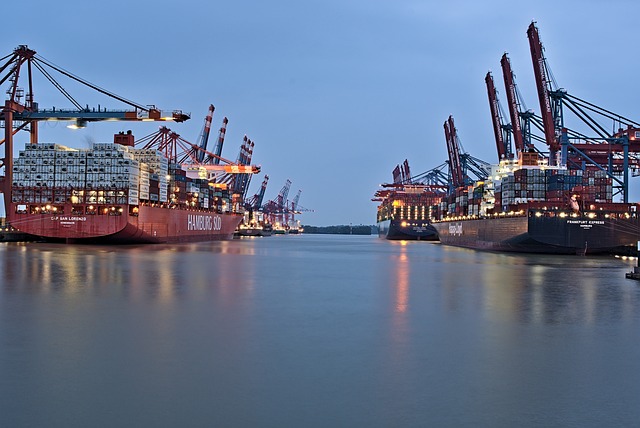Logistics freight is the lifeblood of global commerce, moving goods across cities, countries, and continents. As businesses continue to expand internationally and e-commerce thrives, the need for efficient, reliable logistics services has never been greater. Whether you’re shipping raw materials, finished products, or anything in between, logistics freight ensures that goods reach their destinations on time and in perfect condition. This blog will discuss the essential aspects of logistics freight, its importance in global trade, and the key factors businesses should consider.
What is Logistics Freight?
Logistics freight refers to transporting goods from one location to another through various modes of transport such as road, air, sea, or rail. It encompasses various activities, including packaging, warehousing, inventory management, and shipping. Freight logistics can involve small parcel deliveries, large shipments in containers, or bulk goods like oil and chemicals, depending on the nature of the business and the goods being shipped.
The Importance of Logistics Freight in Global Trade
Logistics freight plays a critical role in facilitating international trade by connecting manufacturers, suppliers, and consumers across the globe. Efficient logistics services help businesses optimize their supply chains, reduce transportation costs, and maintain a competitive edge in the market. Without an effective logistics freight system, businesses would struggle to meet consumer demands, particularly in industries like retail, manufacturing, and pharmaceuticals, where timely delivery is crucial.
Here are some of the key ways logistics freight impacts global trade:
- Enables International Commerce: Goods can travel across borders, enabling businesses to reach new markets and scale their operations globally.
- Reduces Costs: Optimized freight solutions minimize costs by leveraging economies of scale, streamlining transportation routes, and improving fuel efficiency.
- Supports Economic Growth: An efficient logistics system fuels economic development by boosting exports and imports, creating jobs, and fostering innovation in transportation technologies.
Types of Logistics Freight
There are several types of logistics freight, each tailored to different industries, goods, and transportation needs:
- Road Freight: Ideal for short to medium distances, road freight is one of the most common methods for transporting goods domestically and regionally. It offers flexibility and door-to-door delivery but can be affected by traffic and weather conditions.
- Air Freight: Air freight is the fastest method for long-distance shipping, making it perfect for urgent or high-value goods. However, it is also the most expensive option due to the high costs of air transportation.
- Sea Freight: Best suited for large, heavy shipments, sea freight is the most cost-effective option for transporting goods internationally. It offers the capacity for bulk shipping, but delivery times can be longer compared to air freight.
- Rail Freight: Rail freight is often used for large shipments that need to travel across long distances overland. It is a more environmentally friendly option compared to road and air freight, though it is limited to areas with railway infrastructure.
Key Challenges in Logistics Freight
While logistics freight is essential for global trade, it comes with its own set of challenges. Some of the most common obstacles businesses face include:
- Customs Regulations: Navigating international trade regulations, tariffs, and documentation can slow down freight movement and create bottlenecks at borders.
- Cost Fluctuations: Freight costs can vary significantly due to fuel price fluctuations, demand shifts, and geopolitical events, which can impact the overall cost of shipping.
- Supply Chain Disruptions: Events like natural disasters, pandemics, or political unrest can disrupt supply chains, causing delays and increased costs.
- Sustainability: As environmental concerns grow, companies are under pressure to adopt more eco-friendly freight practices, such as reducing carbon emissions and utilizing renewable energy sources.
Technological Advancements in Freight Logistics
The logistics industry is embracing new technologies to overcome challenges and improve efficiency. Some of the advancements transforming logistics freight include:
- Automation and AI: Automated warehouses, autonomous vehicles, and AI-powered routing systems are reducing human error, optimizing delivery routes, and speeding up processing times.
- Blockchain Technology: Blockchain enhances transparency and security in supply chains by providing a decentralized ledger of transactions, improving traceability and reducing the risk of fraud.
- IoT and Telematics: Internet of Things (IoT) devices and telematics are used to monitor and track shipments in real time, improving visibility and allowing businesses to proactively address potential issues.
- Sustainability Solutions: Eco-friendly freight solutions, such as electric trucks, biofuels, and carbon offset programs, are gaining traction as businesses look to minimize their environmental impact.
Choosing the Right Freight Solution
Selecting the right logistics freight solution depends on several factors, including the nature of the goods being shipped, the destination, and the required delivery timeframe. Businesses should consider the following when making freight decisions:
- Type of Goods: Fragile or perishable goods may require specialized handling and faster shipping methods like air freight, while bulk items may be more suited to sea or rail transport.
- Destination: Domestic shipments are best handled by road or rail freight, while international shipments may require a combination of air, sea, and road transport.
- Budget: Cost is a significant factor in freight decisions. While air freight offers speed, sea and road freight provide more economical options, especially for large quantities of goods.
Conclusion
Logistics freight is a vital component of global trade, facilitating the movement of goods across the world. With multiple modes of transport, innovative technologies, and efficient processes, logistics freight ensures that businesses can meet the demands of their customers, no matter where they are located. By understanding the intricacies of freight logistics and the challenges it faces, businesses can make informed decisions to optimize their supply chains and stay competitive in the global marketplace.
